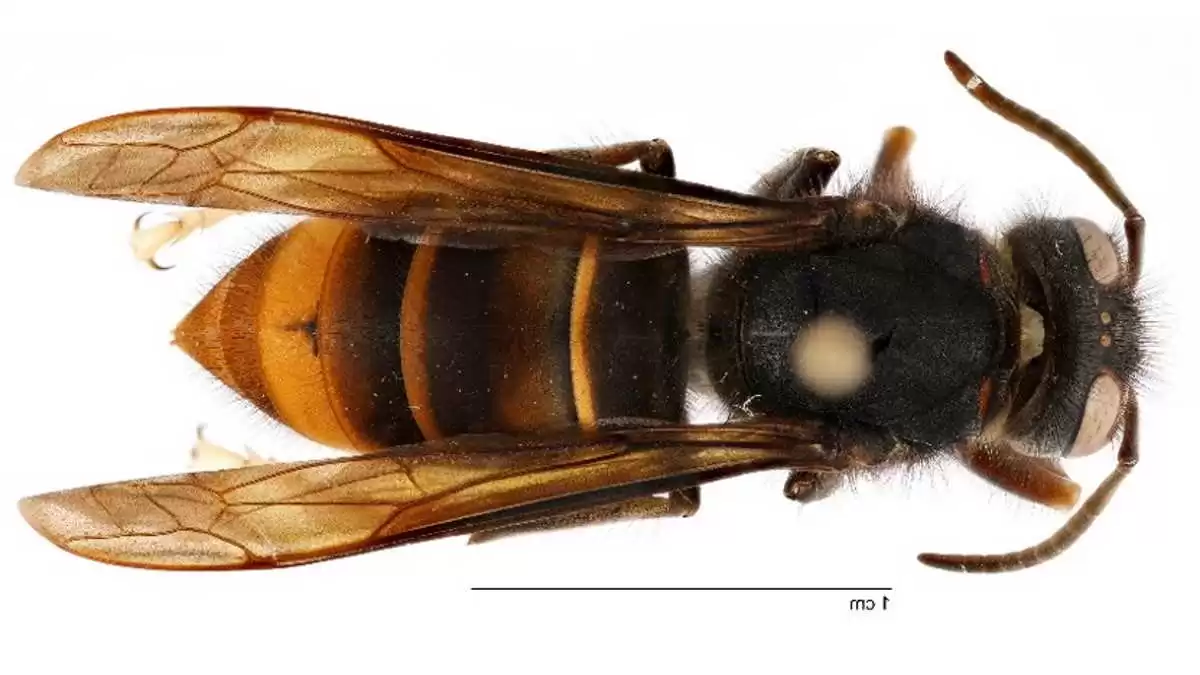Yellow-legged hornet confirmed in Georgia, first time in U.S.
First live yellow-legged hornet detected in the US, posing a potential threat to honey production and agriculture. Public urged to report sightings.
The recent discovery of a live yellow-legged hornet in the open United States has raised concerns about the potential threat it poses to honey production, native pollinators, and Georgia's agriculture industry. The Georgia Department of Agriculture (GDA) is urging the public to report any sightings of this non-native hornet species in order to prevent its establishment in the state.
The discovery was made by a beekeeper in Savannah, GA, who noticed an unusual hornet on his property and promptly reported it to the GDA. On August 9, 2023, the U.S. Department of Agriculture's Animal and Plant Health Inspection Service (APHIS) confirmed the identification of this insect as a yellow-legged hornet (Vespa velutina) based on the analysis conducted by the University of Georgia (UGA).
The yellow-legged hornet is a social wasp species known for constructing egg-shaped paper nests above ground, often in trees. These nests can grow quite large and house an average of 6,000 workers. While native to tropical and subtropical regions of Southeast Asia, the yellow-legged hornet has already established itself in various parts of Europe, the Middle East, and Asia where it is not native.
To tackle this potential threat, the GDA has assembled a team of experienced scientists in their Pest Program who are working closely with USDA and academic experts. Together, they are developing an operational plan to trap, track, and eradicate the yellow-legged hornet in Georgia.
The plan will commence with trapping efforts, as APHIS and GDA will set out traps and conduct surveys to determine the presence of additional yellow-legged hornets in the area. If a colony is discovered through reporting, trapping, or tracking, immediate steps will be taken to eradicate it.
APHIS is providing valuable technical expertise, advanced technology, and outreach support to aid in this endeavor. Additionally, they are analyzing the DNA of the hornet to determine if it shares any genetic similarities with European populations of this species, which could provide valuable insights into its origins and potential spread.
The collaboration between GDA, USDA, and academic experts is crucial in effectively addressing this issue and safeguarding Georgia's honey production, native pollinators, and agriculture industry. By remaining vigilant and promptly reporting any sightings of the yellow-legged hornet, the public can play a significant role in preventing its establishment and mitigating the potential risks it poses.











Comments on Yellow-legged hornet confirmed in Georgia, first time in U.S.